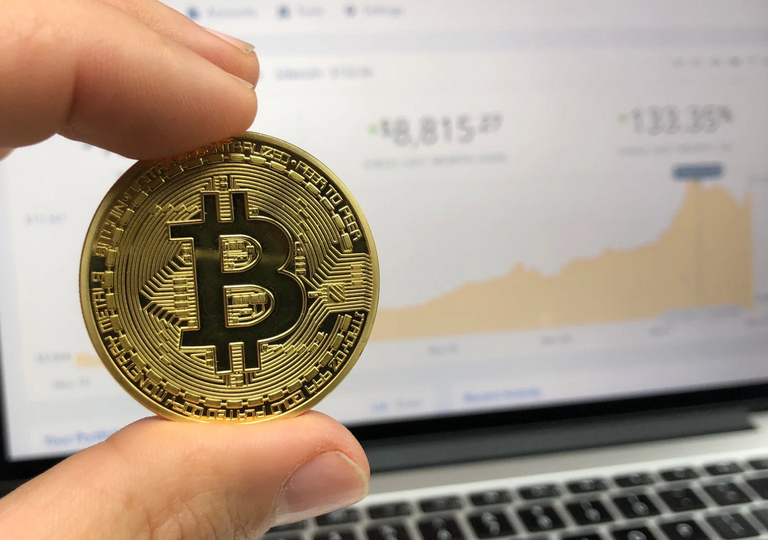
Bitcoin has emerged as a popular digital asset in recent years, gaining a market cap of over $1 trillion. Coinbase, one of the leading cryptocurrency exchanges, is currently battling the Securities and Exchange Commission (SEC) over allegations of operating an unregistered securities venue. Coinbase's lawyers have argued that the recent Supreme Court ruling on student debt cancellation by Biden v. Nebraska is closely analogous to their case, and that lawmakers have yet to establish clear rules for cryptocurrencies. In this article, we'll take a closer look at the ongoing battle between Coinbase and the SEC over bitcoin regulations.
The SEC's Charges Against Coinbase
On June 6, 2023, the SEC charged Coinbase with violating federal securities law. The regulator claimed that Coinbase had been operating as an unregistered securities venue for several years, allowing customers to trade digital assets that the SEC considers to be regulated securities. The SEC alleges that Coinbase knew that it was violating the law by not registering its activities, and that it has been misleading investors about the risks involved in trading cryptocurrencies.
Coinbase has denied the charges, arguing that the SEC does not have jurisdiction over cryptocurrencies. The exchange has also claimed that the SEC is attempting to exert "extraordinary wholesale power" over the cryptocurrency industry, and that the charges represent a breach of power by the regulator. Coinbase's lawyers have cited the recent Supreme Court ruling on student debt cancellation as a precedent for their case, arguing that the SEC needs clear support from Congress to regulate cryptocurrencies.
The Supreme Court Ruling on Student Debt Cancellation
On June 30, 2023, the Supreme Court ruled that the Secretary of Education had overstepped his authority by canceling around $430 billion in student debt. The ruling reinforced a legal doctrine that says that government agencies need clear support from Congress if taking a decision of major economic or political significance. Coinbase has argued that this ruling is closely analogous to their case, as lawmakers have yet to establish clear rules for cryptocurrencies.
In their legal filing, Coinbase's lawyers have claimed that "Far from granting the 'clear congressional authorization' required for the SEC to exercise such authority, Congress has expressly recognized that it has not yet delegated such regulatory authority and is actively considering regulatory structures for the digital asset industry." The exchange has argued that the SEC is attempting to regulate cryptocurrencies without the necessary support from Congress, and that this represents a breach of power by the regulator.
U.S Lawmakers and Digital Asset Laws
U.S lawmakers are currently considering a range of digital asset laws, including a recently revived bipartisan bill by Senators Cynthia Lummis (R-Wyo.) and Kirsten Gillibrand (D-N.Y.) which favors giving authority to the Commodity Futures Trading Commission (CFTC) rather than the SEC. The bill would establish clear rules for cryptocurrencies, and would require companies like Coinbase to register with the CFTC.
The SEC has argued that digital assets, including the tokens tied to Solana (SOL), Cardano (ADA), and Polygon (MATIC), constitute regulated securities, and that Coinbase knew it was violating the law by failing to register its activities. The regulator has also made similar allegations against rivals Binance and Bittrex. All three companies have denied the charges, arguing that the SEC does not have jurisdiction over cryptocurrencies.
The Preliminary Hearing and Potential Consequences
The parties met on Thursday for a preliminary hearing in a New York courtroom. The hearing could potentially drag on for years, as Coinbase and the SEC are expected to present extensive evidence and arguments. If the SEC wins the case, Coinbase could face significant fines and penalties, and the exchange could be forced to register with the SEC. If Coinbase wins the case, it would set a precedent for other cryptocurrency exchanges, and could limit the SEC's ability to regulate cryptocurrencies.
The battle between Coinbase and the SEC over bitcoin regulations is a significant event in the cryptocurrency industry. The outcome of the case could have far-reaching consequences for the future of digital assets, and could establish clear rules for cryptocurrencies. Coinbase's lawyers have argued that the recent Supreme Court ruling on student debt cancellation is closely analogous to their case, and that the SEC needs clear support from Congress to regulate cryptocurrencies. U.S lawmakers are currently considering a range of digital asset laws, which could establish clear rules for cryptocurrencies and limit the SEC's regulatory authority.
My name is Asteroids - well, that's my Hive name, anyways. I believe firmly in the future of Web3 technology and its potential to reshape our lives. I'm a serial entrepreneur and my aim in life is to always evolve and find new ways to leverage technology in my life.
As I continue to build things, I find new and important wisdom in all sorts of places. My goal here on Hive is simply to share that wisdom so that you can improve as well.
Working is as much about building good habits as it is about doing the actual work. Remembering this on a daily basis has changed my life for the better.
Until next time
-A



